Yuechi Zhou
Accurate KV Cache Quantization with Outlier Tokens Tracing
May 16, 2025Abstract:The impressive capabilities of Large Language Models (LLMs) come at the cost of substantial computational resources during deployment. While KV Cache can significantly reduce recomputation during inference, it also introduces additional memory overhead. KV Cache quantization presents a promising solution, striking a good balance between memory usage and accuracy. Previous research has shown that the Keys are distributed by channel, while the Values are distributed by token. Consequently, the common practice is to apply channel-wise quantization to the Keys and token-wise quantization to the Values. However, our further investigation reveals that a small subset of unusual tokens exhibit unique characteristics that deviate from this pattern, which can substantially impact quantization accuracy. To address this, we develop a simple yet effective method to identify these tokens accurately during the decoding process and exclude them from quantization as outlier tokens, significantly improving overall accuracy. Extensive experiments show that our method achieves significant accuracy improvements under 2-bit quantization and can deliver a 6.4 times reduction in memory usage and a 2.3 times increase in throughput.
OpenBA-V2: Reaching 77.3% High Compression Ratio with Fast Multi-Stage Pruning
May 09, 2024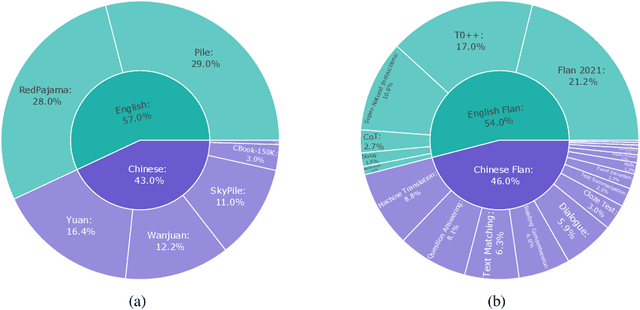

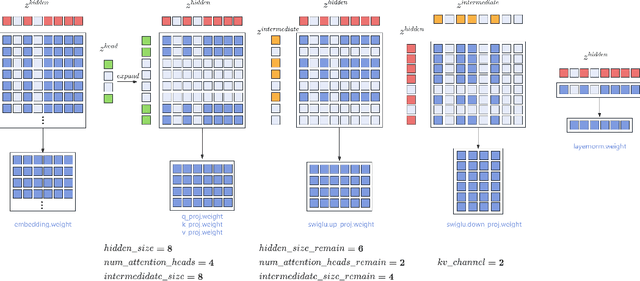
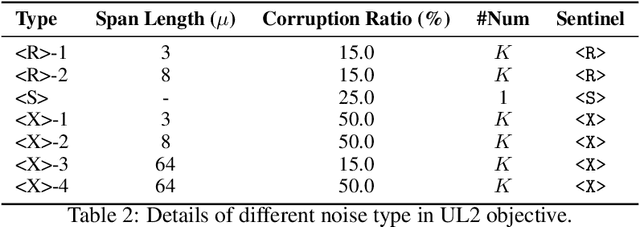
Abstract:Large Language Models (LLMs) have played an important role in many fields due to their powerful capabilities.However, their massive number of parameters leads to high deployment requirements and incurs significant inference costs, which impedes their practical applications. Training smaller models is an effective way to address this problem. Therefore, we introduce OpenBA-V2, a 3.4B model derived from multi-stage compression and continual pre-training from the original 15B OpenBA model. OpenBA-V2 utilizes more data, more flexible training objectives, and techniques such as layer pruning, neural pruning, and vocabulary pruning to achieve a compression rate of 77.3\% with minimal performance loss. OpenBA-V2 demonstrates competitive performance compared to other open-source models of similar size, achieving results close to or on par with the 15B OpenBA model in downstream tasks such as common sense reasoning and Named Entity Recognition (NER). OpenBA-V2 illustrates that LLMs can be compressed into smaller ones with minimal performance loss by employing advanced training objectives and data strategies, which may help deploy LLMs in resource-limited scenarios.
Chinese grammatical error correction based on knowledge distillation
Aug 05, 2022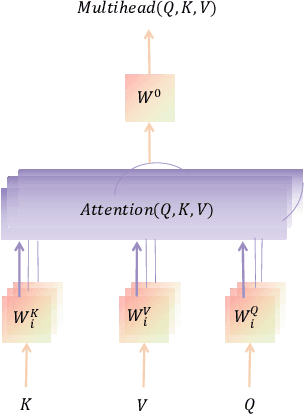

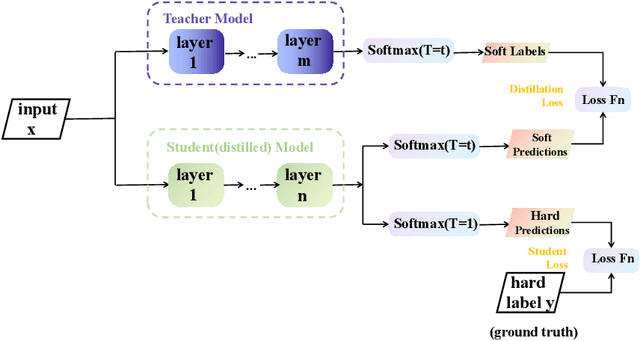

Abstract:In view of the poor robustness of existing Chinese grammatical error correction models on attack test sets and large model parameters, this paper uses the method of knowledge distillation to compress model parameters and improve the anti-attack ability of the model. In terms of data, the attack test set is constructed by integrating the disturbance into the standard evaluation data set, and the model robustness is evaluated by the attack test set. The experimental results show that the distilled small model can ensure the performance and improve the training speed under the condition of reducing the number of model parameters, and achieve the optimal effect on the attack test set, and the robustness is significantly improved.
 Add to Chrome
Add to Chrome Add to Firefox
Add to Firefox Add to Edge
Add to Edge